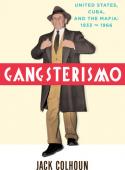

We are delighted to present you Dr. Angela Stent’s proposal for her first book for the trade PUTIN’S RUSSIA.
How does Putin view the outside world and how do other countries view Russia? Why were initial Western expectations that a post-Soviet Russia would gradually become a liberal market democracy so wrong? And where will Russia move when Putin has left the Kremlin?
PUTIN’S RUSSIA will be the result of years of extensive academic work by one of the foremost experts on the subject, on the triangular political and economic relationship between the United States, Russia and Europe. PUTIN’S RUSSIA will outline the challenges for the next US president and for European and Asian leaders as they deal and will continue to deal with Putin's Russia—and with a post-Putin world. This book will explore these questions, seeking to explain contemporary Russia in its domestic and international context.
Dr. Stent, Director of the Center for Eurasian, Russian and East European Studies and Professor of Government and Foreign Service at Georgetown University, has been a member of the advisory panel for NATO’s Supreme Allied Commander in Europe, a member of the Council on Foreign Relations. She is on the editorial boards of the Journal of Cold War Studies, World Policy Journal and Internationale Politik. She has served on the World Economic Forum’s Global Agenda Council for Russia and Central Asia. She is a member of the Advisory Board of the Eurasia Foundation and of Supporters of Civil Society in Russia.
Dr. Stent received her B.A. from Cambridge University, her MSc. with distinction from the London School of Economics and Political Science and her M.A. and PhD. from Harvard University.
She is fluent in Russian, German, and French.
****
Proposal dostępny
kontakt:
Agata Żabowska
agata@literatura.com.pl

Frederic Beigbeder’s new novel is OONA & SALINGER, which Grasset & Fasquelle are to publish on 20 August.
It is already receiving a lot of attention and those publishers who have Scouts are making enquiries.
Oona & Salinger
Grasset, August 2014
In an attempt to explain why JD Salinger seemed to vanish for a part of 1953, the author invents a doomed love affair with Oona, the daughter of the American playwright, Eugene O’Neill.
There comes a time when all men seem to wait expectantly for catastrophe to come and sweep away their problems. These periods are generally known as – the pre-war years. They are not an ideal time to fall in love.
New York City, 1940. At the swanky Stork Club, where the wealthy, the aristocratic, the show girls and the most dazzling stars of the time all mixed, Jerry Salinger meets Oona O’Neill and falls instantly under her spell. That day, like many others, Truman Capote is cavorting with the young girl, and Orson Welles’ cigar smoke floats in the air.
Salinger’s writer’s voice is starting to shine on the literary scene; Oona is struggling to accept her estrangement from her father, the famous American playwright Eugene O’Neill, who has condemned her lifestyle as depraved. Salinger and Oona’s brief romance blossoms the following summer, a few months before Pearl Harbour.
In early 1942, Salinger is called up to fight in Europe and Oona sets off to try her luck in Hollywood. Salinger begins writing to Oona, who at first answers briefly, before getting on with her own life, consumed by the passion and inconstancy of youth. He, normally so subdued, becomes verbose and describes the war in profound depth, devoid of any lightness. His solemnity and distance become incongruous with Oona’s carefree spirit and thirst for life. She is as light on her feet as in the days of balloon-catching at the Stork Club.
Their relationship is doomed to failure like the ashtray that Oona gives to Salinger, later shattered into pieces.
They don’t live happily ever after, and they don’t have any children. These two comets will never cross blazing paths again, but the aura of Oona will continue to haunt Salinger even in his darkest hours.
**********
kontakt:
Renata Paczewska
renata@literatura.com.pl

Joyce Carol Oates blends sexual violence, racism, brutality, and power in an incendiary novel that explores how the complexities of truth are lost in our hunger for sensationalism.
Fourteen-year-old Sybilla Frye is discovered in an abandoned factory bound with rope, covered in blood and feces, her body scrawled with racial slurs. She refuses to speak to any policemen, providing the officer on duty with only three Post-Its, on which she has written, “WHITE COP,” “WEAR A BAGDE,” and “AGE 30 THEY WHITE THEY ALL WHITE.” Ednetta, Sybilla’s strong-willed mother, is mistrustful of the police, and thwarts all attempts by them to contact Sybilla. Ednetta also takes pains to keep Sybilla’s situation hidden from her longtime lover Anis Schutt, whose distrust of the Pascayne police force runs deep. Both Ednetta and Anis are also scarred from the race riots of twenty years prior.But despite Ednetta’s efforts, the community begins to talk about Sybilla’s story. Details and facts don’t add up. There is the undeniable peculiarity of the slurs being written upside down on her body. And one of Sybilla’s schoolmates is saying she came looking for a boy named Jaycee at the Mountainview Youth Facility the day after she was supposedly kidnapped. Attracted by the rumors inflaming the community, Maris Mudrick, a charismatic reverend, decides to take Sybilla under his wing. Marus sets up press conferences for Sybilla, organizes rallies and protests, and travels the country attempting to get someone to hold the Pascayne police force accountable for Sybilla’s ordeal. Fanned by Maris’s agitation and incitement, Sybilla’s story takes on a life of its own and spins out of control, leading to a shocking act of violence that splits the town in two.
THE SACRIFICE is a chilling exploration of modern racial and class tensions, the power of secrets, and the primal decisions of a mother desperate to protect her child.
Joyce Carol Oates is a recipient of the National Medal of Humanities, the National Book Critics Circle Ivan Sandrof Lifetime Achievement Award, the National Book Award and the PEN/Malamud Award for Excellence in Short Fiction, and has been nominated for the Pulitzer Prize. She has written some of the most enduring fiction of our time, including the national bestsellers We Were the Mulvaneys, Blonde, which was nominated for the National Book Award, and the New York Times bestsellers The Accursed and The Falls, which won the 2005 Prix Femina. She is the Roger S. Berlind Distinguished Professor of the Humanities at Princeton University and has been a member of the American Academy of Arts and Letters since 1978. In 2003 she received the Common Wealth Award for Distinguished Service in Literature, and in 2006 she received the Chicago Tribune Lifetime Achievement Award.
We sold the author’s most recent novel, CARTHAGE, overseas as follows: French/Editions Philippe Rey; Greek/Patakis; Italian/Mondadori; Norwegian/Pax; Polish/Rebis; Spanish/Alfaguara; Swedish/Bonniers; UK/Fourth Estate
***********
kontakt:
Agata Żabowska
agata@literatura.com.pl

Michael captures—with a fan’s respect and a critic’s eye—the beating heart of a young girl on the precipice of greatness.
HER AGAIN,
Becoming Meryl Streep
by Michael Schulman
I writing to share an exciting project with you by Michael Schulman, culture and entertainment writer for The New Yorker and The New York Times and Meryl Streep fan extraordinaire. The book, tentatively titled HER AGAIN: Becoming Meryl Streep, will reconstruct Streep’s formative years in a tight, dramatic narrative that explores how she became the cultural icon she became today.
Michael captures—with a fan’s respect and a critic’s eye—the beating heart of a young girl on the precipice of greatness.
Full manuscript will be available in November 2015.
**************
kontakt:
PROPOSAL DOSTĘPNY
Agata Żabowska
agata@literatura.com.pl

Radical journalist Colhoun's nearly 20 years of research reveal how Castro's rise to power made unlikely allies of the United States government and the Mafia casino owners he sought to expel from Cuba.
Gangsterismo is an extraordinary accomplishment, the most comprehensive history yet of the clash of epic forces over several decades in Cuba. It is a chronicle that touches upon deep and ongoing themes in the history of the Americas, and more specifically of the United States government, Cuba before and after the revolution, and the criminal networks known as the Mafia.
The result of 18 years’ research at national archives and presidential libraries in Kansas, Maryland, Texas, and Massachusetts, here is the story of the making and unmaking of a gangster state in Cuba. In the early 1930s, mobster Meyer Lansky sowed the seeds of gangsterismo when he won Cuban strongman Fulgencio Batista’s support for a mutually beneficial arrangement: the North American Mafia were to share the profits from a future colony of casinos, hotels, and nightclubs with Batista, his inner circle, and senior Cuban Army and police officers. In return, Cuban authorities allowed the Mafia to operate its establishments without interference. Over the next twenty-five years, a gangster state took root in Cuba as Batista, other corrupt Cuban politicians, and senior Cuban army and police officers got rich. All was going swimmingly until a handful of revolutionaries upended the neat arrangement: and the CIA, Cuban counterrevolutionaries, and the Mafia joined forces to attempt the overthrow of Castro.
Gangsterismo is unique in the literature on Cuba, and establishes for the first time the integral, extensive role of mobsters in the Cuban exile movement. The narrative unfolds against a broader historical backdrop of which it was a part: the confrontation between the United States and the Cuban revolution, which turned Cuba into one of the most perilous battlegrounds of the Cold War.
………………………………
“The anti-communist hysteria generated by the Cold War frequently unhinged the policy judgments of US government officials in many areas, but nowhere so completely as in our relations with Cuba. This conclusion is inescapable as Gangsterismo brilliantly unravels the bizarre tale of the Mafia army the Kennedy brothers recruited in their manic determination to rid Cuba of Castro, that vexing, seemingly indomitable Communist.” —Martin J. Sherwin, co-winner of the Pulitzer Prize (together with Kai Bird) for American Prometheus: The Triumph and Tragedy of J. Robert Oppenheimer
“What is shocking is not what is new, but how much that is old – already on the record in presidential and other archives, CIA and FBI files, memoirs and histories – in Jack Colhoun’s Gangsterismo. Drawing on the National Security Archives, papers and books, public and private, he damningly documents the pathetic, incompetent and sometimes comic, but always inappropriate and anti-democratic, attempts by the CIA and/or its confederates, working in tandem with members of the mob, to assassinate Castro and overthrow the Cuban revolution.” —Victor S. Navasky, publisher emeritus, The Nation; professor, Columbia University Graduate School of Journalism
“Gangsterismo is an invaluable addition to our background knowledge about that small island nation that has incurred so much devotion and ire from U.S. Americans. Books about Cuba abound, but this one lays bare an often forgotten pre-revolutionary history of U.S.-based organized crime, and subsequent hidden U.S. government covert action. Colhoun has done his homework. This is a must-read.” —Margaret Randall, author of To Change the World: My Years in Cuba
“Few aspects of Cuba-U.S. relations have so doggedly resisted serious inquiry as the subject of organized crime in Cuba. Much of what we know has reached us by way of popular culture, principally through film and fiction, to which the subject of the underworld in the tropics so aptly lends itself. Colhoun represents a breakthrough: serious scholarship on a serious subject. He casts light upon one of the darkest recesses of a dark history, calling attention to the convergence of interests between the underworld of criminal activity and nether world of covert operations – and reveals in the process that film and fiction have actually only scratched the surface of a sordid story.” —Louis A. Pérez, Jr.editor, Cuba Journal; professor of history, University of North Carolina at Chapel Hill
Publication April 2013 • 361 pages
Jack Colhoun is an independent historian of the Cold War (University of Wisconsin, Madison, BA, 1968; York University , PhD, 1976), an investigative reporter and professional archival researcher. Colhoun has written widely on U.S. foreign policy and covert intelligence operations. His work has appeared in the Washington Post, Toronto Star, The Nation, The Progressive, National Catholic Reporter, and Covert Action Quarterly. Colhoun was a longtime Washington bureau chief of the storied radical newsweekly The Guardian until it closed in 1992. During the Vietnam War, Colhoun, an anti-war Army lieutenant, was a leader of draft and military resisters exiled in Canada and an editor of the American exile magazine AMEX-Canada.
***************
kontakt:
Piotr Wawrzeńczyk
piotr@literatura.com.pl
